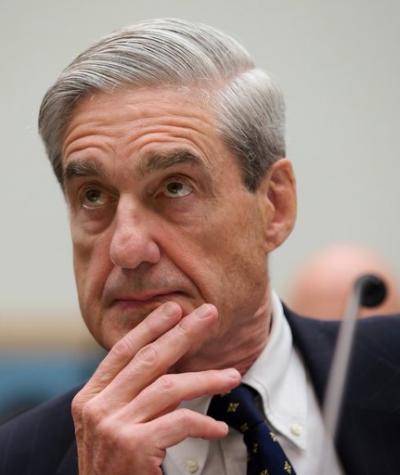For 22 months, prominent Trump critics focused on Special Counsel Mueller’s investigation as a magic bullet, with sights set on charging President Trump with a crime.
Now that Attorney General William Barr has sent a four-page letter summarizing Mueller’s report, which concludes that Mueller was unable to establish that the Trump campaign coordinated with Russian efforts to interfere in our elections, these critics have expressed that the investigation was for naught.
But Mueller’s investigation confirmed new details about the extent to which Russia worked to confuse, divide and infiltrate our democracy months before the 2016 election. Mueller charged 12 Russian intelligence officers with the hacking of the Democratic National Committee and the Clinton presidential campaign.
We should not lose sight of the message Mueller did deliver with this investigation: a foreign adversary tried to subvert American democracy in 2016 by executing a massive influence campaign, and they would do it again if given the chance.
That should alarm every American who cares about the integrity of our democracy – enough to finally call for action to prevent further foreign interference in 2020.
As Washington Post columnist Charles Lane wrote: “Mueller knew there was no actual chance of hauling Russian agents into an American court. But by narrating the ‘manner and means of the conspiracy’ by which a foreign power exploited the divisions within our society, he might have caused us to reflect upon and, eventually, heal them. …So far, that aspect of the Mueller investigation has not received the attention, or inspired the action, that it merits. Unless and until it does, American democracy will remain vulnerable to outside interference and to the demons we breed at home.”
So what can Americans do to stop this before 2020?
The “For the People” Act (HR 1), if passed and signed into law, would be a step in the right direction. The bill, which passed the House and is soon to be introduced in the Senate, would require disclosure of the true funders of election ads and modernize rules so they apply online, where most election ads are placed. This is especially important now because legal loopholes have opened the door to foreign powers looking to execute nefarious online campaigns. In the 2016 presidential election, Russian accounts manipulated Facebook, Twitter and Google users to “confuse, distract and ultimately discourage” them from voting. Thus, by extending transparency requirements to digital platforms, the bill could help stem foreign meddling, helping us conduct free and fair elections.
Immediately following the 2016 election, CLC released a report detailing the vulnerabilities of American elections to foreign interference. The report outlines solutions for addressing this most urgent issue, such as:
- The Federal Election Commission (FEC) and internet platforms requiring political advertisers to identify themselves to voters. Requiring disclaimers stating who paid for digital political ads should be an easy fix. Both the FEC and some internet platforms are already making progress in this direction, but more must be done.
- Congress strengthening disclosure laws, by passing the bipartisan HONEST Ads Act or passing the For the People Act.
- The public and private sectors improving voters’ media literacy. Even if new online transparency policies are implemented—and especially if they are not—civic society has an important role to play in improving voters’ media literacy in the midst of an increasingly complex online landscape.
- Congress bolstering our election infrastructure security and modernizing voting equipment. Any effort to guard against future foreign meddling requires protecting our election infrastructure. This includes bolstering security resources available to the states and providing funds for modernizing voting equipment, preparing election officials for the newest threats and continually testing and improving election systems across the country.
It's clearer now than ever: addressing foreign interference must be treated as a national priority because it is an urgent national security threat. Mueller’s investigation indicates that’s something that can no longer be up for debate.
